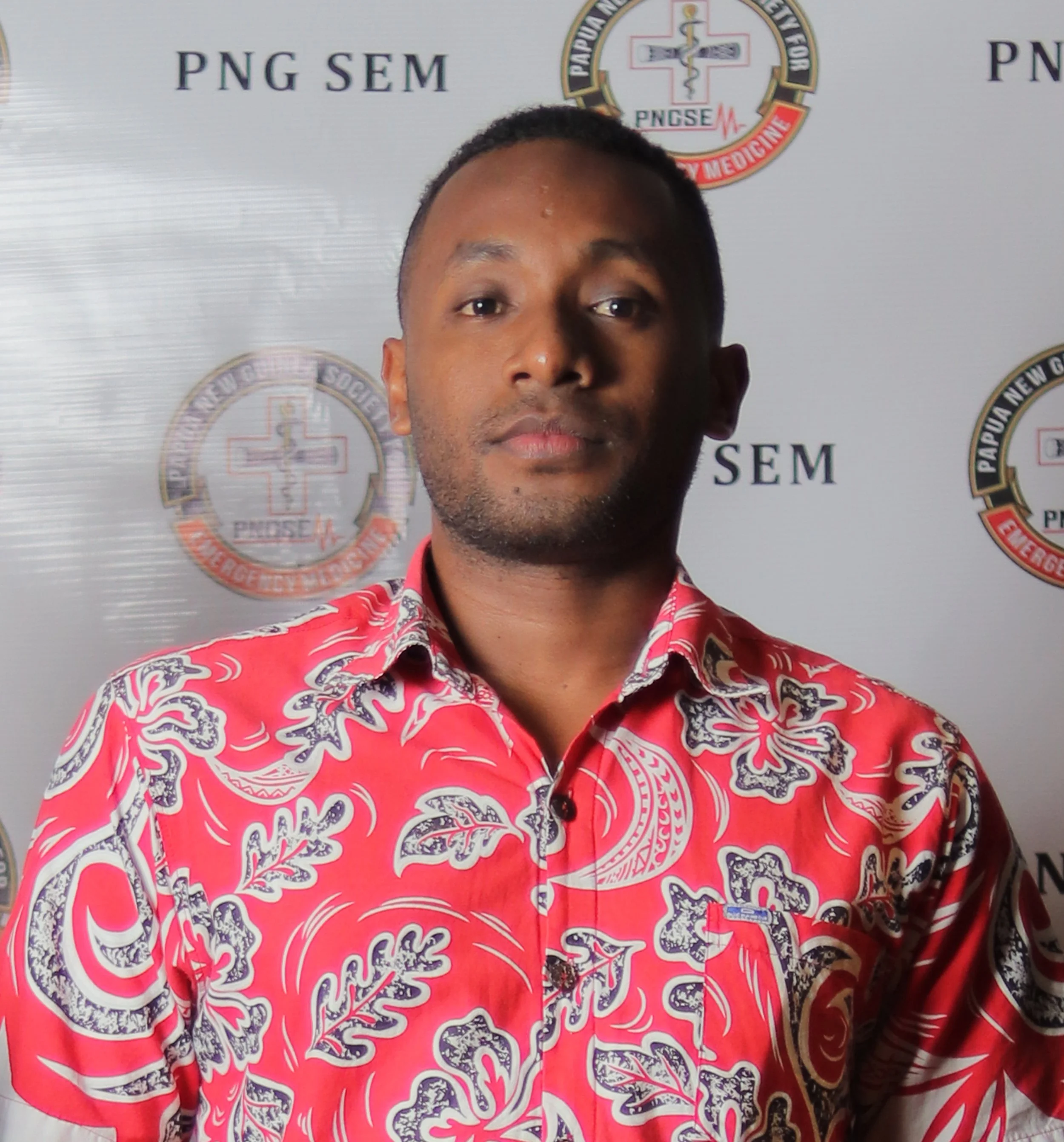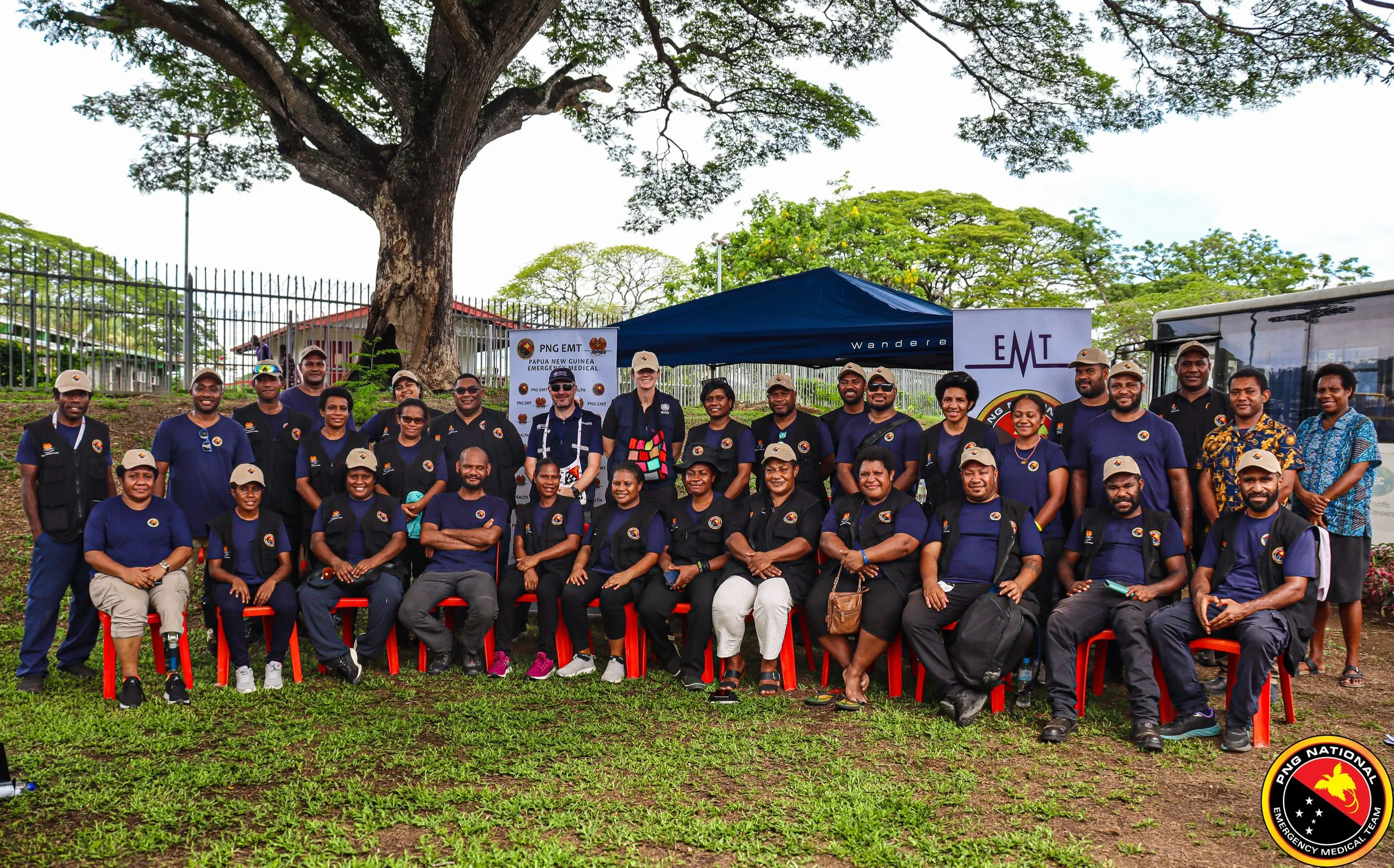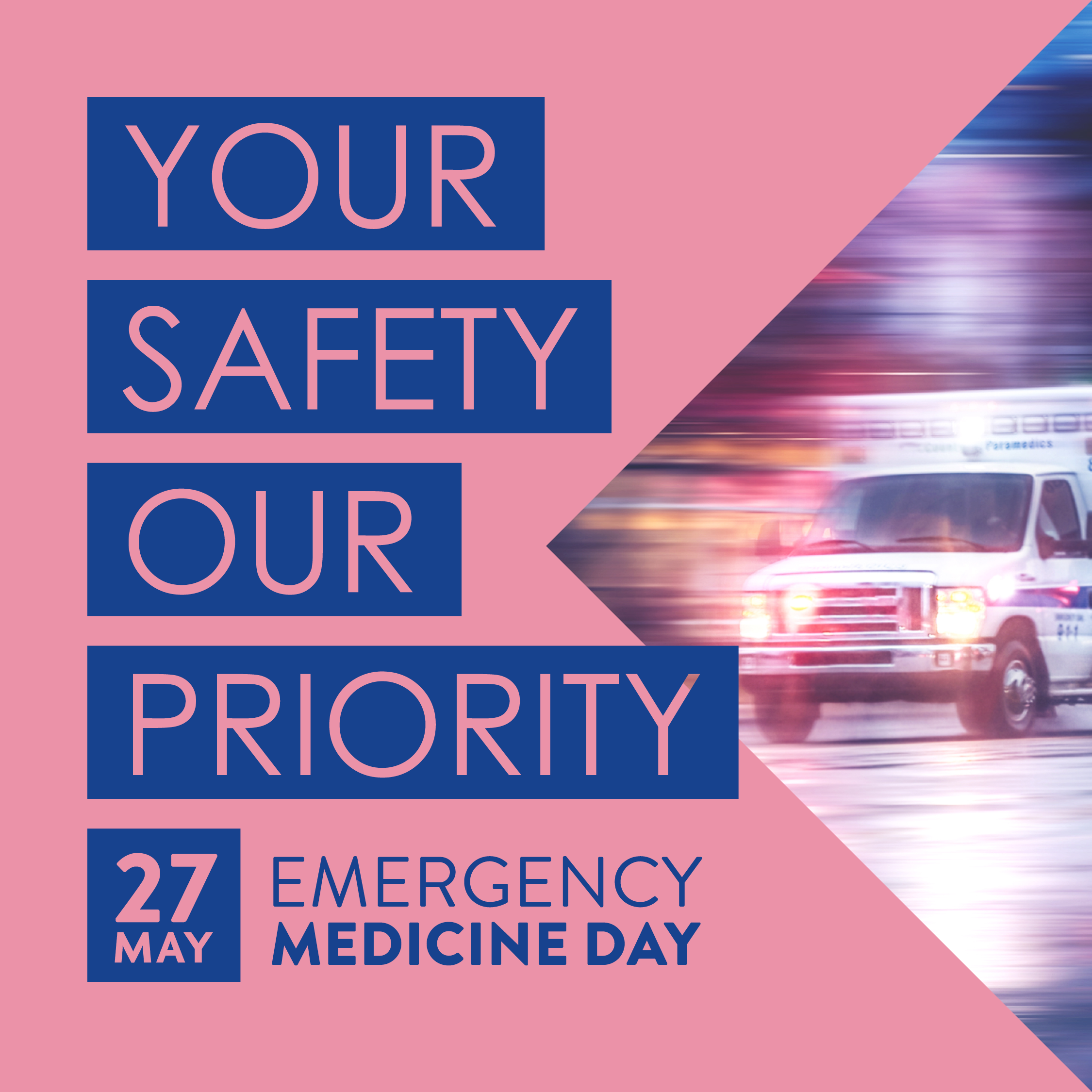Celebrating 25 years of emergency medicine as a specialty in PNG
Emergency medicine as a speciality is turning 25 years old in Papua New Guinea. EM trainee Dr Ulysses Oli, a final-year candidate of the Masters of Medicine in Emergency Medicine (MMed EM) program at the University of Papua New Guinea, currently working at the Port Moresby General Hospital ED, reflects on what this means to him.
It’s not every day that your work as an emergency health worker in a low-resource setting like PNG is appreciated by fellow citizens. We don’t get as much glamour (or funding) as our sister specialties do.
Don’t get me wrong, surgeons, paediatricians, obstetricians and physicians do a great job providing much-needed specialist care.
“But it is the emergency folks that have to deal with initial care – the incoming traffic of patients, the extended length-of-stays, the patients who are belong-to-everybody-but-nobody, and the chaos of disasters and major incidents. So it is nice when we do get the occasional pat on the back from our patients and members of the community. ”
But it is the emergency folks that have to deal with initial care – the incoming traffic of patients, the extended length-of-stays, the patients who are belong-to-everybody-but-nobody, and the chaos of disasters and major incidents. So it is nice when we do get the occasional pat on the back from our patients and members of the community.
This was the response of a senior respected PNG citizen to a LinkedIn post of mine recently, entitled ‘Emergency medicine in PNG is 25 years old’, showing gratitude to the Emergency Department (ED) workers at the Port Moresby General Hospital (PMGH):
‘It is not easy to work in Emergency. Everyone's screaming and crying in pain. It's chaos. I've seen people with knives stuck in their backs, people suffering from psychosis, drunk patients, etc … to (you) and your hardworking colleagues there at Emergency, THANK YOU.’
Life in the ED
Emergency medicine (EM) is turning a big 25 years old in PNG and I would like to reflect on this as an EM trainee. My name is Ulysses Oli, and I am a final-year candidate of the Masters of Medicine in Emergency Medicine (MMed EM) program at the University of Papua New Guinea (UPNG), currently working at PMGH ED (main image above).
I grew up wanting to be a surgeon, but I ended up an adrenaline junkie, taking up EM as a young medical officer back in 2017. I fell in love with the specialty during residency when I saw first-hand how emergency physicians commanded a chaotic shift, running mini-ICUs in the resuscitation bay, manoeuvring through ECGs and ultrasounds while still having time to teach and to come back sane the next day. However, as my training progressed, I realised that this strong clinical acumen and great work culture stemmed from an unseen framework of established systems advocated by great leadership.
The first 25 years
That’s when I wanted to learn about the development of emergency care in PNG. Although the formal Masters in EM program was launched in 2003, work towards this started in the year 2000 with the first EM specialty meeting conducted in 2002. (1)
The program was funded by Australian Aid and supported by the Australasian College for Emergency Medicine (ACEM). FACEMs such as Dr Chris Curry and Prof. David Symmons were among the first to run the EM training program and mentor the trainees. (1,2) The program was later led and supported by other FACEMs such as Prof. Colin Banks, Dr Georgina Phillips, Dr Rob Mitchell and many others from Australia and around the world. They contributed tremendously to the development of post-graduate training.
“I fell in love with the specialty during residency when I saw first-hand how emergency physicians commanded a chaotic shift, running mini-ICUs in the resuscitation bay, manoeuvring through ECGs and ultrasounds while still having time to teach and to come back sane the next day”
EM has been one of the fastest-growing clinical specialties in PNG now with more than 20 graduated EPs and many more in training. Regional programs such as the Regional Emergency and Critical Care Systems Strengthening Initiative (RECSI) are improving local EC capacity through projects such as the Basic Emergency Care (BEC) short course roll-out.
Today we have local emergency physicians leading organisations such as the National St John Ambulance PNG and PNG Emergency Medical Team (PNG EMT). We also have emergency physicians with senior roles at the National Department of Health, while many more are running their own EDs in provincial hospitals.
Hopes for the future
So where are we heading in the next 25 years?
I am excited to see the evolution of emergency care into the global agenda of Emergency, Critical and Operative (ECO) care according to the World Health Assembly Agenda 76.2 (WHA 76.2) as an initiative to achieve universal health coverage (UHC).
“Happy 25 years celebrations to my fellow emergency care colleagues around PNG and cheers to our FACEM family and many others who made this dream a reality!”
I am excited to be a part of this incredible specialty as we try to improve capacity in EDs across the country achieving standardised, quality ECO care for all Papua New Guineans and providing support to our sister Pacific Island countries, just as support was provided to us. I am hopeful that subspecialty training in EM becomes a reality for emergency physicians from PNG in the near future.
It is such an exciting journey for emergency medicine in PNG.
Happy 25 years celebrations to my fellow emergency care colleagues around PNG and cheers to our FACEM family and many others who made this dream a reality!
References
1. Curry C. Message to the 4th Emergency Medicine Meeting at the Annual Symposium of the Medical Society of PNG. Newsletter of the International Emergency Medicine Specialist Interest Group (IEMSIG) of ACEM. 2005; 1(2):2–3
2. Curry C, Annerud C, Jensen S, Symmons D, Lee M, Sapuri M. The first year of a formal emergency medicine training programme in Papua New Guinea. Emergency Medicine Australasia. 2004;16(4):343–7








